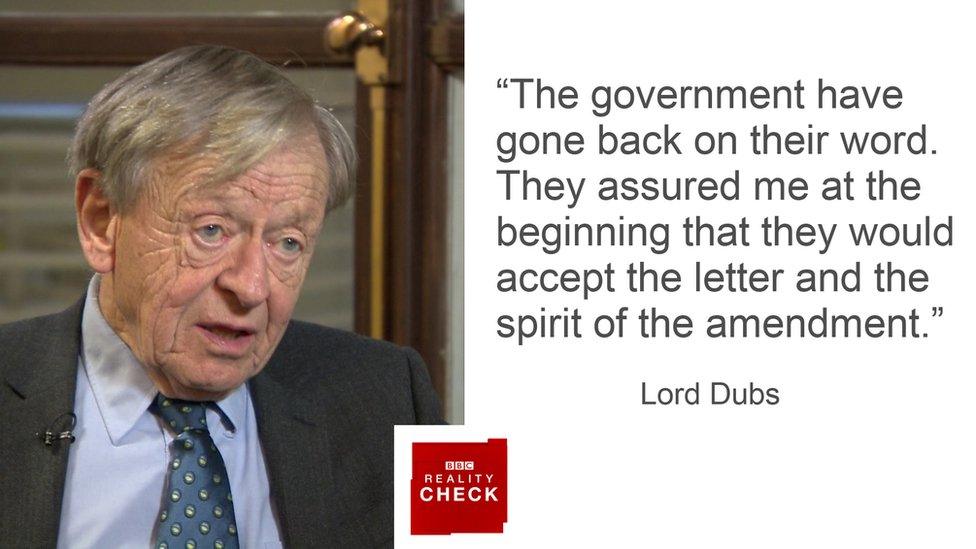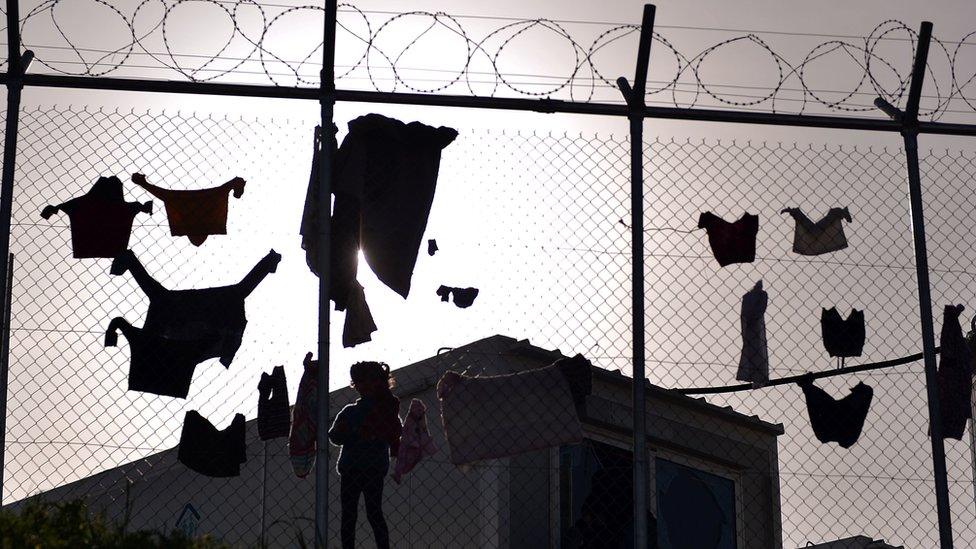Reality Check: Did government go back on its word on child refugees?
- Published

The claim: The government had committed to taking 3,000 unaccompanied refugee children from Europe, but it will now close the programme after taking in just 350.
Reality Check verdict: The government previously referred to a goal to bring 3,000 unaccompanied children to the UK but eventually passed an amendment that did not commit to a specific figure. Immigration Minister Robert Goodwill says the 350 figure meets the "intention and spirit" of the Dubs Amendment, but Lord Dubs disagrees.
Speaking on the BBC's Victoria Derbyshire programme, Labour peer Lord Dubs spoke of his disappointment that the government had "gone back on their word" on how many unaccompanied asylum-seeking children would be brought to the UK from Europe.
The 3,000 figure was originally put forward in a campaign run by charity Save the Children.
And in January 2016, the then Immigration Minister, James Brokenshire, said the government would commit to resettling increasing numbers of refugees, most of whom would be children, mentioning the 3,000 figure as a goal but without giving any figure as a commitment.
Then, in March 2016, Lord Dubs, who came to the UK himself as a child refugee fleeing the Nazis, tabled an amendment to the Immigration Bill, which would require the UK to take in 3,000 children who had been separated from their families.
Rejected
This had strong support from all opposition parties and a number of Conservative MPs.
And it passed in the House of Lords by a significant margin at the end of March.
But when it went to the Commons in April, the Conservative government's position was to vote against the amendment, and it was rejected by a narrow margin.
It then went back to the House of Lords, where Lord Dubs reworded the amendment to read that the UK should take a "specified number" of unaccompanied children from Europe and that this number would be agreed later in discussion with local authorities.
This again passed in the Lords with a significant majority.
It then went back to the Commons and was expected to go to a vote on 9 May.
But, on 4 May, ahead of the vote, Mr Cameron accepted the revised version of the amendment.
Family
Nearly a year later, on Wednesday, 8 February 2017, Immigration Minister Robert Goodwill announced that the government would transfer 350 unaccompanied children - about a 10th of the original figure - from refugee camps in Europe, which, he said, would meet the "intention and spirit" of Lord Dubs's amendment.
Mr Goodwill said this would include about 200 children already brought to the UK under the terms of Lord Dubs's amendment and another 150 still to come.
He said that more than 900 children had been brought here from Calais in total in 2016.
The 700 brought to the UK but not under the terms of Lord Dubs's amendment were brought here under a different regulation, which allows unaccompanied minors to come to the UK if they already have immediate family here.
- Published8 February 2017
- Published10 July 2016
